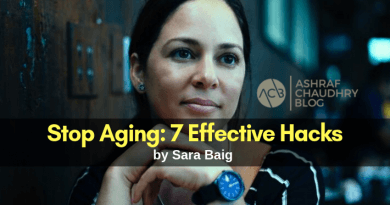7 Insane Insomnia Causes That Will Give You Goosebumps
Insomnia is one of the gravest issues pertaining to health that the modern man is facing. Insomnia causes may vary from person to person; however, it is affecting millions of people around the globe. Insomnia is a sleep disorder that causes difficulty in falling asleep, difficulty in staying asleep, disturbed sleep, or makes you wake up too early. And once you wake up, you are unable to go back to sleep easily. It badly affects overall health, mental & physical, leading to daytime sleepiness, drowsiness, anxiety, mood swings, and feeling of being sick.
To deal with this issue, you have to know and comprehend insomnia causes. In this write-up, I am going to give you a detailed account of 7 insane insomnia causes that will give you goosebumps.
1- Insomnia Causes Concerned with Medical Conditions
There are a large number of medical conditions that may result in insomnia. In certain cases, a health problem itself leads to insomnia while at some other occasion, a sign of health issue causes unease that ultimately results in disturbed sleep. Chronic pain, asthma, sleeps apnea, angina, congestive heart failure, chronic obstructive pulmonary disease, stroke, tumors, brain lesions, acid reflux disease, and Parkinson’s & Alzheimer’s diseases are some of the major medical issues that may cause insomnia.
If you have sleep disruption on a routine basis, it is better to consider your health and reflect on if there are any rudimentary medical issues or sleep disruptions imparting your insomnia. In some situations, you can adopt simple measures to improve your sleep patterns like darkening your room or avoiding distractions such as TV, mobile, pet, etc. While in other cases, it is crucial to consult your doctor. You must not tolerate poor sleep as a usual pattern of life-consult your doctor for help.
2- Depression Might be Making You Sleepless
Psychiatric conditions like depression can also be a cause of insomnia. Psychical strains may induce sleep disturbance. Insomnia itself might give rise to mood swings and changes in hormones, and such conditions may bring about both psychological issues as well as insomnia.
Sleep issues may be a symbol of depression, and the menace of acute insomnia is pretty much greater in patients with serious depression issues. Researches indicate that insomnia may also provoke depression or deteriorate it. It is essential to understand that insomnia and the signs of depression (such as lack of motivation, low energy, hopelessness or sadness, etc.) can be associated and one may cause the other. However, the good thing is that both are curable.
YOU MIGHT ALSO LIKE READING: The 7 Super Tips to Adopt a Healthy Lifestyle
3- Don’t let Anxiety be cause of Insomnia
Many grown-ups have had trouble sleep due to feeling nervous or worried. And for some, it is a routine matter that disturbs their sleep. Symptoms of anxiety that may result in insomnia are; stress, tension, too much obsession with past or future, feeling the pressure of responsibilities, and feeling of excitement. It is quite obvious to perceive how these signals of anxiety can trouble or disrupt your sleep. Anxiety could be linked with initial insomnia i.e. difficulty in falling asleep or retention insomnia that make it hard to go back to sleep if you wake up during the night.
When this prevails for a considerable period of time, you might begin feeling anxious, panic, and terrible on the thought of having trouble sleeping. In this way, anxiety and insomnia may nurture each other and turn into a cycle that should be broken through treatment.
YOU MIGHT ALSO LIKE READING: Stop Aging: 7 Effective Hacks
4- Your Lifestyle May Keep You Awaken at Night
Your lifestyle and sleeping habits might also contribute to insomnia. Unhealthy living and sleep behaviors can generate insomnia by themselves, or they may aggravate already existing insomnia. You might face trouble sleep or insomnia in the case;
- You work till late at night
- You take a nap during the day
- You work in changing shifts that disturb your body clock and makes it difficult to adjust
YOU MIGHT ALSO LIKE READING: 5 Tips How to Stop Procrastinating
5- Bad Habits Yield Bad Results
Another cause of insomnia is concerned with your eating habits. If you intake heavy meals late in the evenings or just before going to bed, it would lead to sleep disturbance. Spicy and oily foods can also trouble to sleep. A lot of people undergo heartburn, an influx of acidity, and it makes it difficult to sleep.
In order to avoid difficulties in sleep, you need to reconsider your patterns of eating. Try to eat at least 3 hours before going to bed and avoid caffeine intake particularly in the evenings. You can also seek help from sleep-inducing foods like warm milk, cereals, etc.
6- Brain Functioning
In certain cases, insomnia may be caused by specific neurotransmitters within the brain that are concerned with sleep and alertness. The human brain has a wake cycle and a sleep cycle that function in their turns. If the regular pattern of this brain function is disrupted for some reason, it would lead to insomnia.
Naturally, there are various chemical interplays within the brain that might disturb sleep. This is self-explanatory that why some people are genetically susceptible to insomnia and suffer from sleeping difficulties throughout their lives. Relaxing therapies might help in this case.
7- Aging, an Inevitable Cause of Insomnia
As you age, you are more likely to induce insomnia. This might happen due to;
- Alterations in sleep patterns: As you get older, your sleep tends to be less comfortable and you get easily disturbed by noise or light.
- Alterations in physical activity: You may become less active in your later years and this inactivity would lead to insomnia.
- Alterations in health: Acute pain due to arthritis, anxiety, depression, and other health issues come with aging that might ultimately lead to insomnia.
Insomnia, if left untreated, might become a menace for your well-being. Therefore, don’t take it lightly. Insomnia causes, whether acute or chronic, are treatable. Quite a number of options are available from therapies to medications or a blend of the two. You can also help yourself by improving your eating and living habits. In severe cases, seek advice from your physician.
Amber Awan is a lifestyle coach, nature lover and minimalism adviser. She has studied English literature from University of Punjab.




